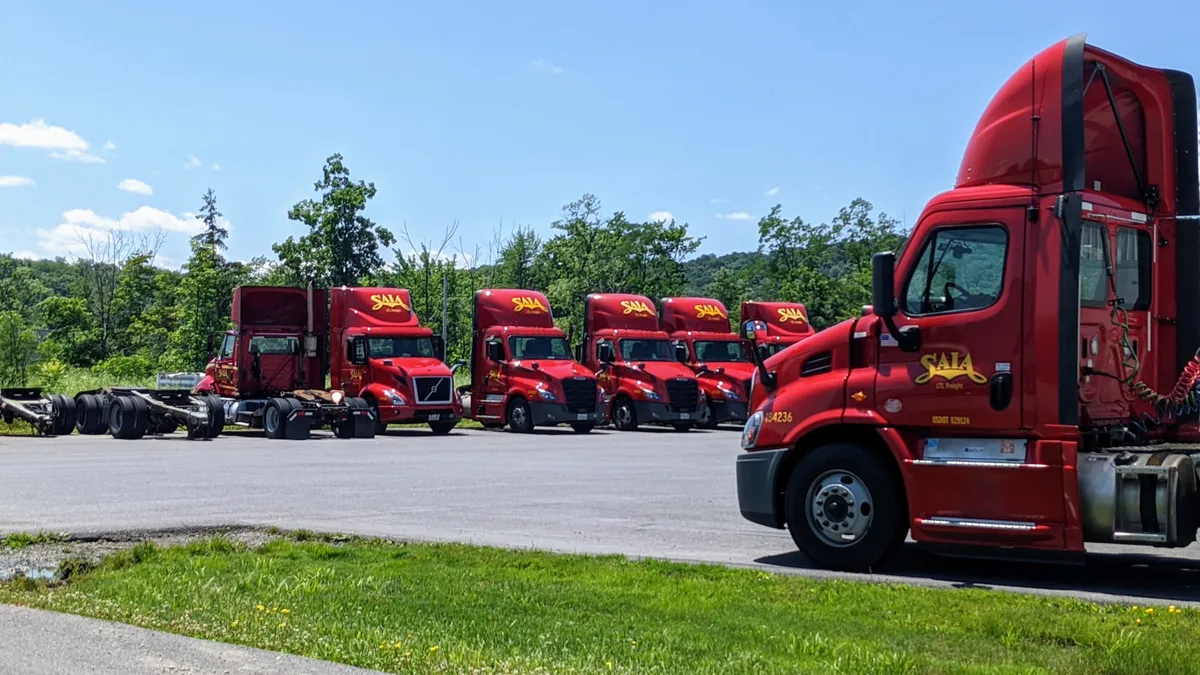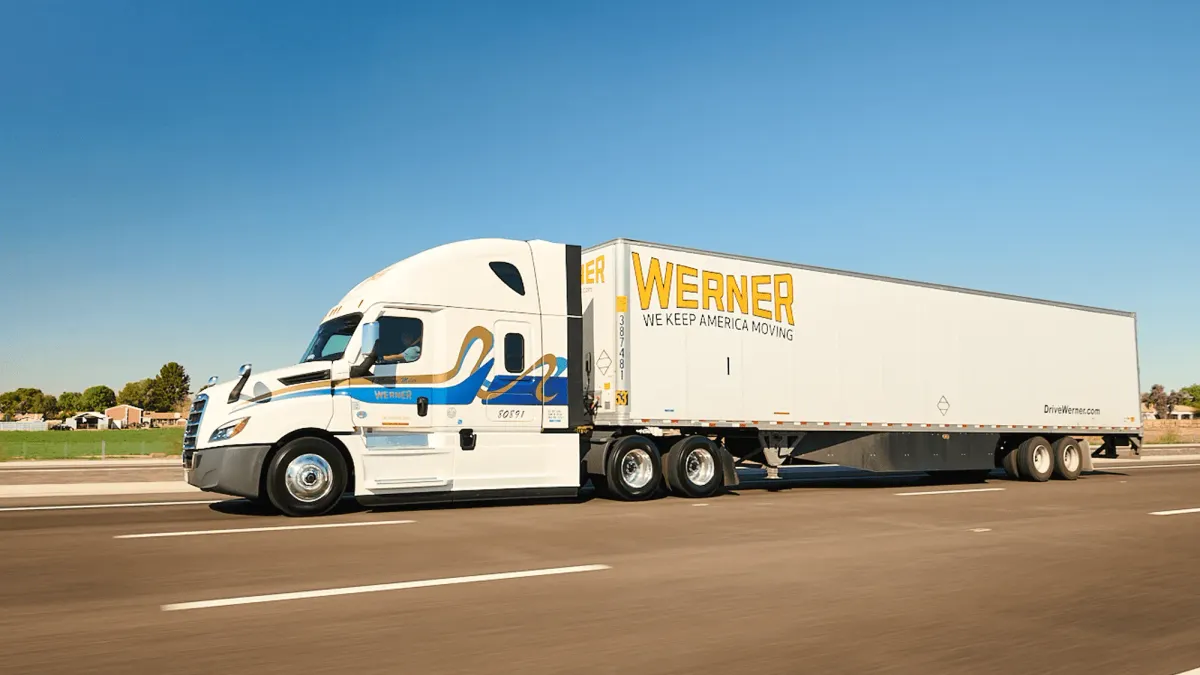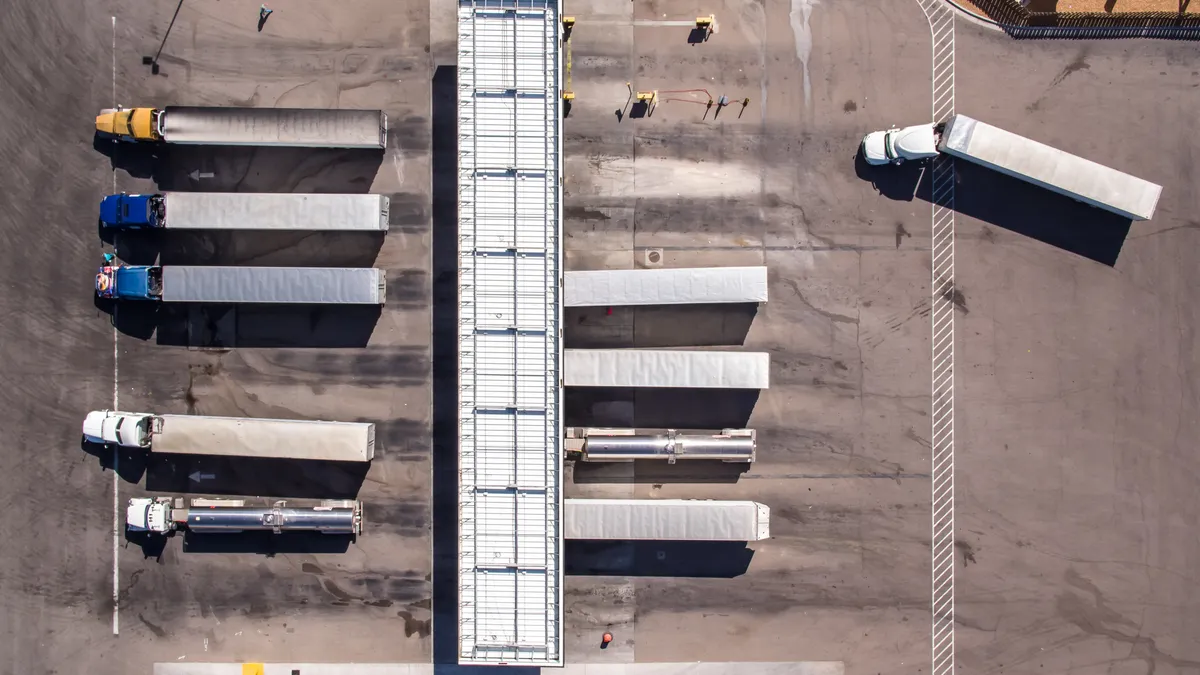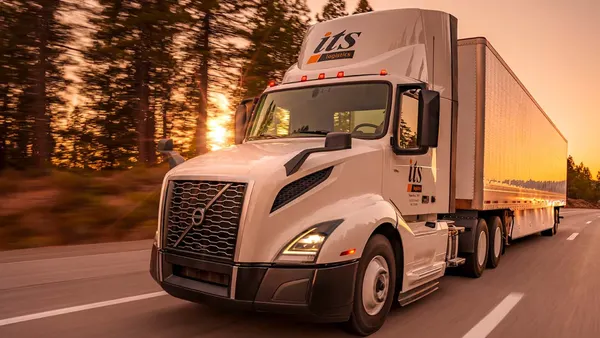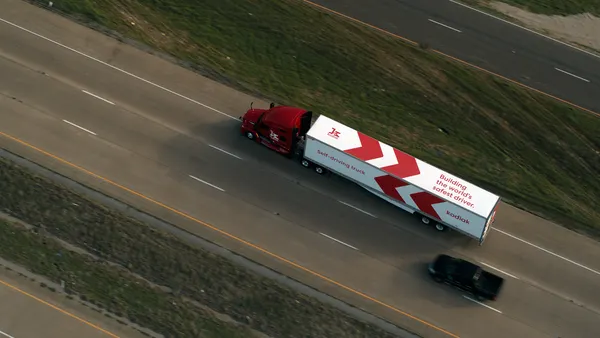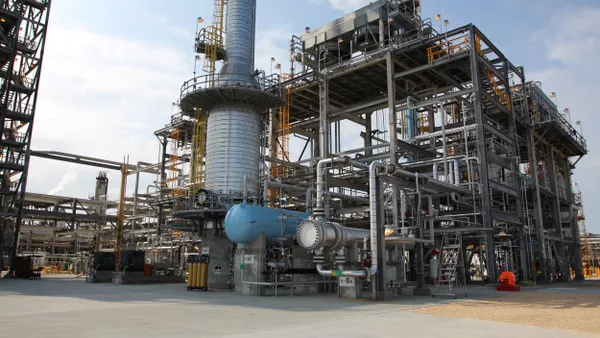When Saia considers new technology for its business, it considers several key parameters. The LTL carrier carefully evaluates the tech investment, makes sure it delivers productivity, and fits into its customer first strategy, EVP and Chief Information Officer Rohit Lal told Trucking Dive.
"While we are extremely nimble and forward-looking, we are also careful to look beyond the hype before implementing AI, or any other new technology," Lal said in an email.
Data, technology and new digital capabilities have caused a frenzy with new products and services, but LTL carrier Saia notes there must be a clear purpose to guide those additions.
Despite the downcycle, the carrier has invested in technology, part of a sweeping $2 billion overhaul for the company over the last five years, according to its latest annual report.
"We believe the investments we have made and continue to make in our network, technology and our people during this down cycle position us well for the future," EVP and CFO Matthew Batteh said on a July earnings call.
Net capital spending for a technology/other line item rose to $64 million in 2024, up from $36.7 million and $33.4 million in previous years, the annual report noted.
That spending matters for Saia’s extensive network of shipments, trucks and trailers, the company noted.
For 2025 and 2026, tech investments are focused on "three key areas that directly impact our operational efficiency and customer experience: enhanced visibility across our network, improved predictive capabilities for capacity planning, and streamlined customer interfaces," Lal said.
Other carriers have also implemented AI. XPO and ArcBest recently noted how they've used it to improve route planning, and Landstar System said in May it's investing in the technology to help stop cargo theft.
But just because a technology is available doesn't mean Saia will pursue it, officials said. Saia didn't list any companies that it felt were doing the opposite of its strategy.
Regardless, Saia did say that every technology investment for the carrier is "carefully evaluated and must deliver tangible results, whether that’s improving productivity or meaningfully supporting our ‘Customer First’ strategy," Lal said.
"What’s most important isn’t the technology, but the focus on capabilities that will compound our key differentiators of speed, reliability, and excellent customer service," he said.


